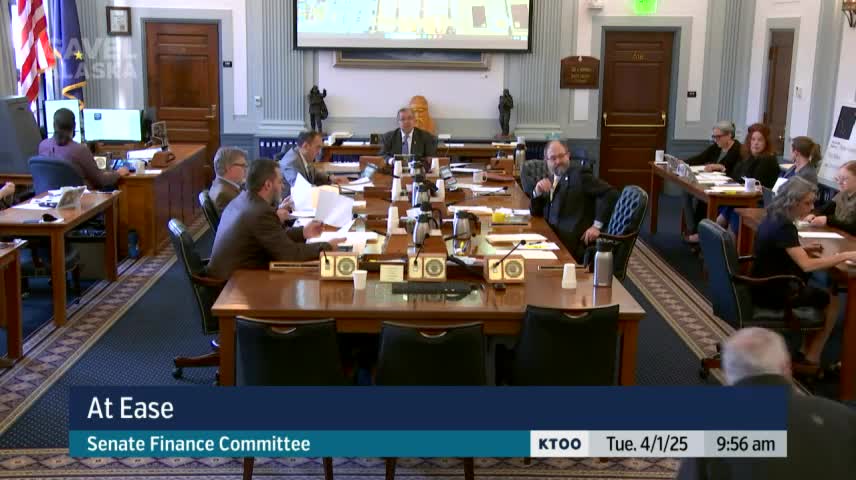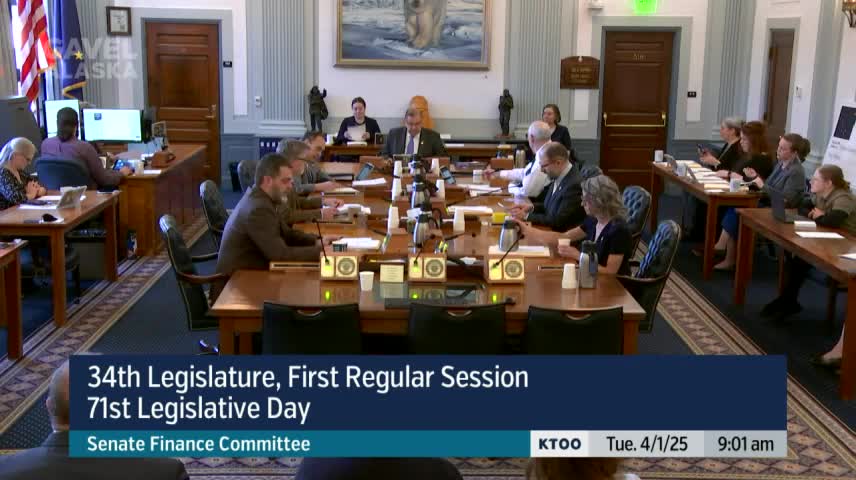Article not found
This article is no longer available. But don't worry—we've gathered other articles that discuss the same topic.

Committee hears bill to raise tobacco/e-cigarette age to 21, add vape tax; public health groups back measure while retailers warn of illicit-market risk

Bill to create permanent executive-administrator position for Alaska big-game guide board wins support from guides; committee holds first hearing

